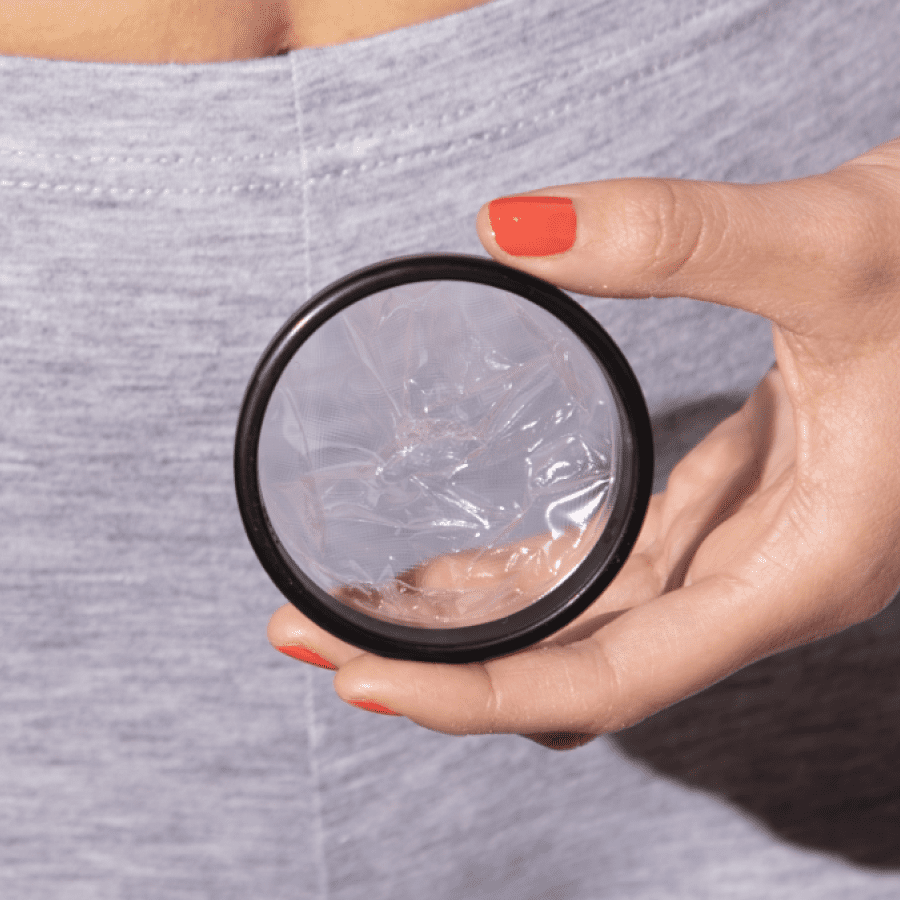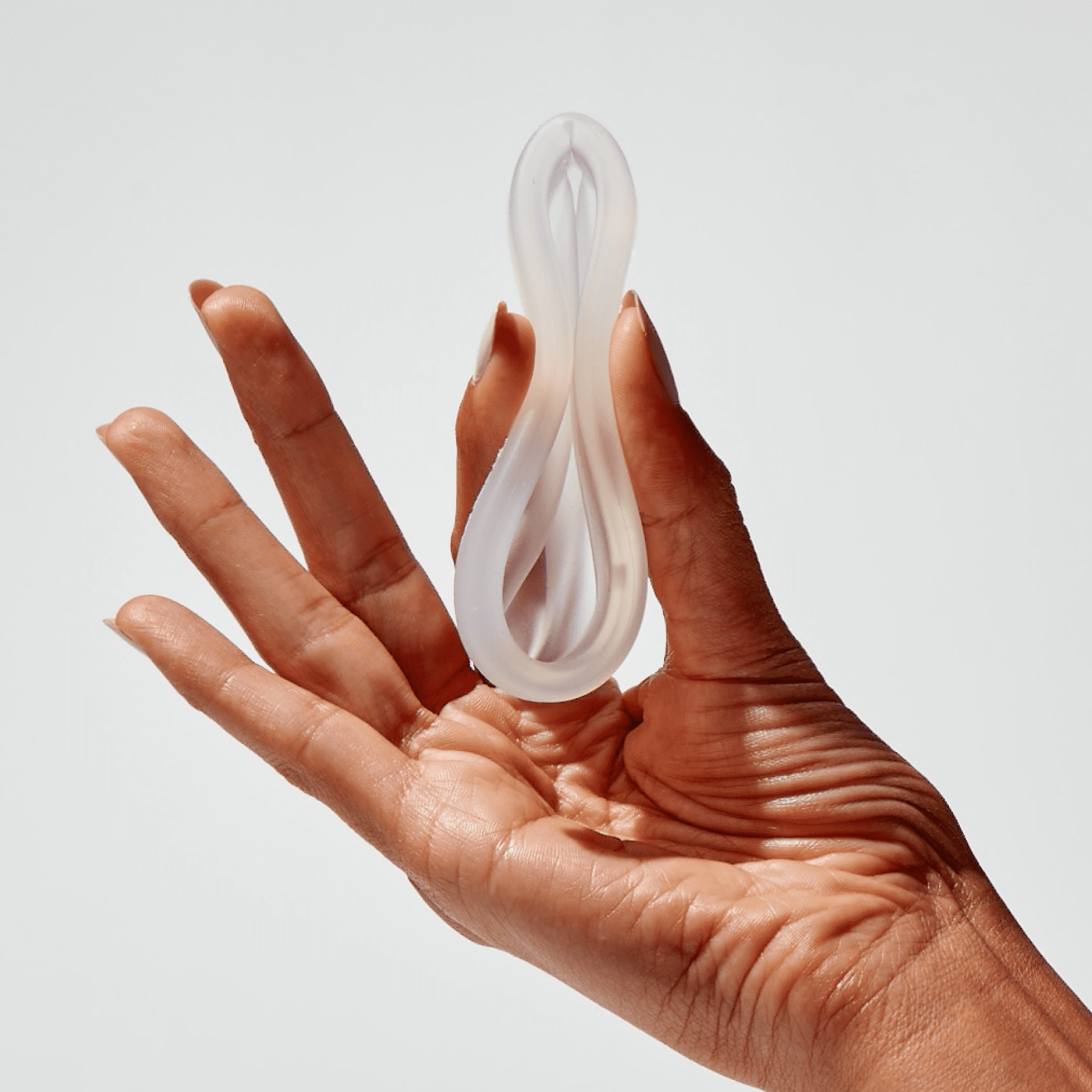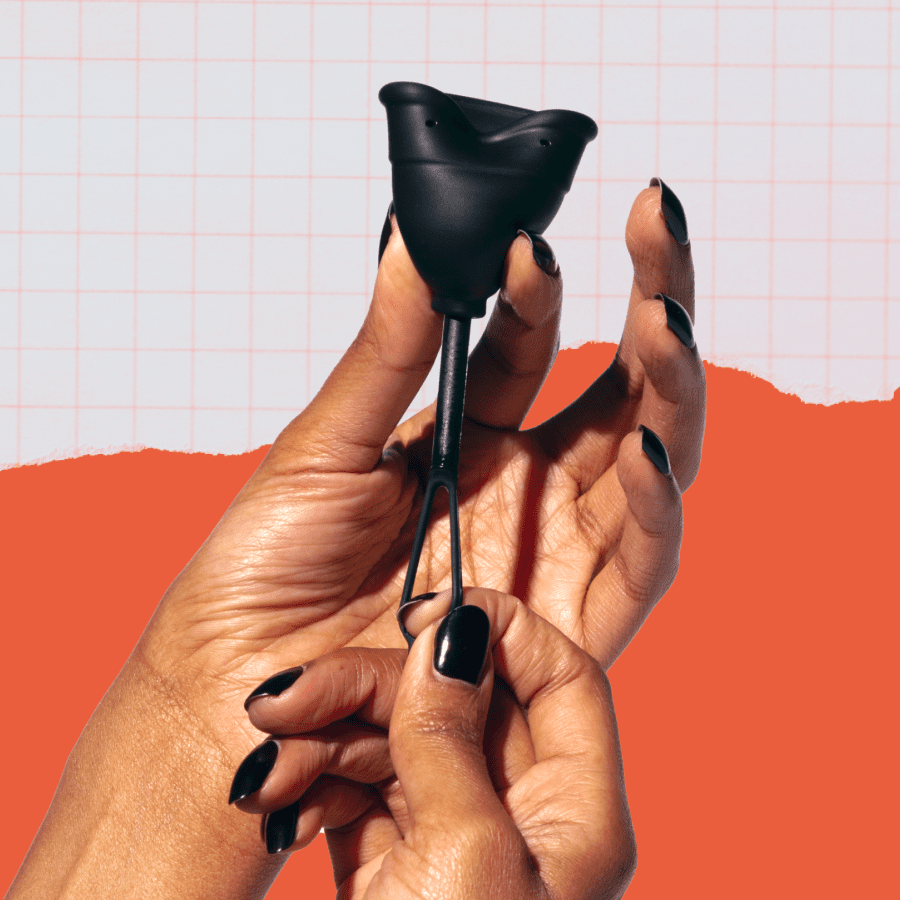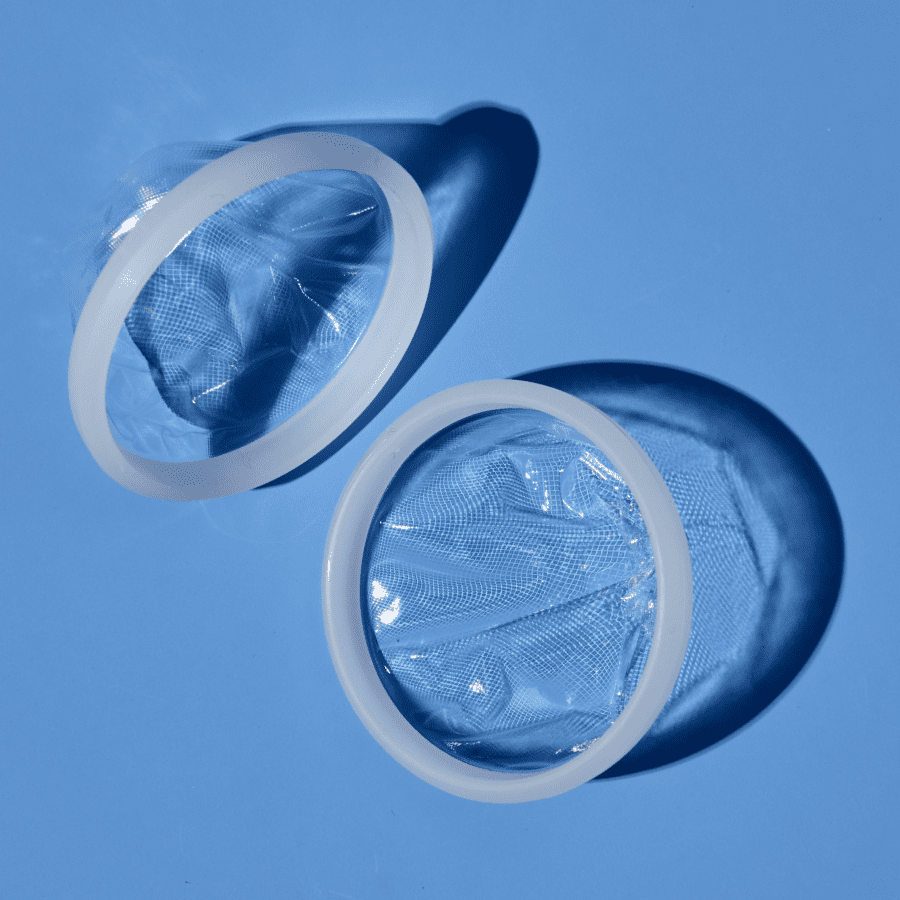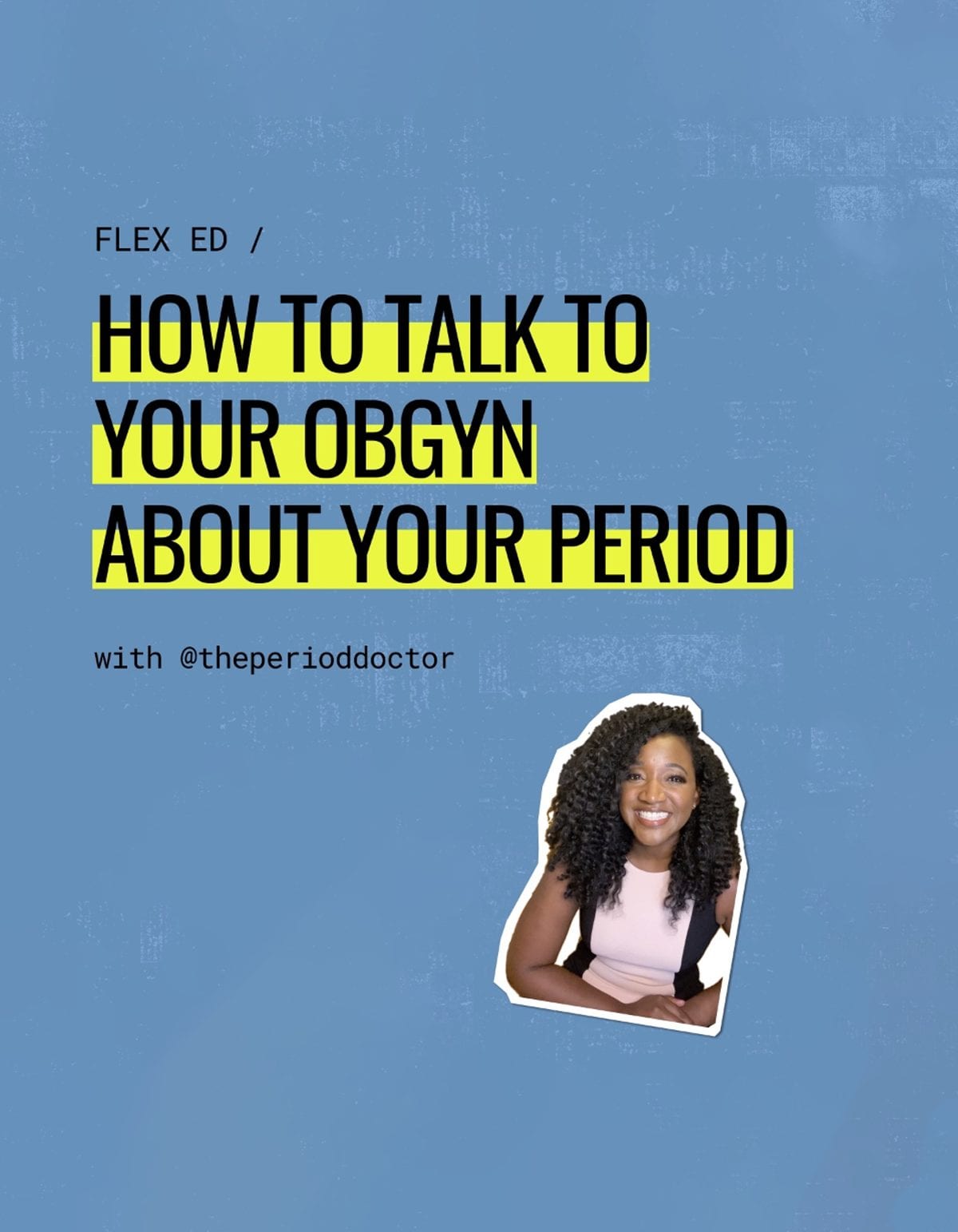Ask an OB/GYN: Does the Covid vaccine affect the menstrual cycle?
Here’s what we know about how the Pfizer, Moderna, and J&J vaccines could impact your period
This article was originally published in May 2021. Please scroll down to view the January 2022 update.
Some of us have periods so regular we could use them to set a Swiss watch. For others, periods always come as sudden surprises—and at the most inconvenient moments. In recent months, though, people in both camps have started asking the same question: Could the Covid vaccine be the reason behind the change in my period?
Not too long ago, we were more worried about the virus itself, and asking whether or not contracting Covid-19 affected our periods. Since then, vaccines have (in most places in the US) become widely available, easing a lot of our worries about catching the coronavirus. However, new worries have cropped up now, too: Many people are telling anecdotal post-vaccine tales of shorter, longer, heavier, or more painful periods. Cue long, dramatic Twitter threads, popular surveys, and even newspaper op-eds.
Of course, these stories shouldn’t discourage you from getting vaccinated against SARS-CoV-2—a dangerous virus that’s killed more than 841,000 Americans as of January 2022. In contrast, the period-related vaccine side effects some people are reporting are very temporary and far from life-threatening.
A key mission of ours here at Flex® is to destigmatize period talk. And achieving that mission means empowering you with all the period-related information that’s currently available. To do so, we spoke with Dr. Jane van Dis, a board-certified OB-GYN with 20 years of experience.
Find out what we know about the Covid vaccine’s effect on menstrual cycles, what to expect after your vaccine in regards to your period, and why these potential vaccine effects are still far less serious than the consequences of getting Covid itself.
January 2022: New research finds that the Covid vaccine has little impact on the menstrual cycle
A recent study led by Alison Edelman, MD, MPH, a professor of obstetrics and gynecology at Oregon Health & Science University, Portland, puts an end to the debate, concern, and widespread misinformation regarding the Covid vaccine and its impact on the menstrual cycle.
As noted in an article published by Medscape on January 7, 2022, “The investigators found that COVID-19 vaccination was associated with a less than 1-day change in cycle length for the menstrual cycles after the first and second inoculations, compared with prevaccine cycles. Vaccination had no effect on the actual number of days menstrual bleeding lasted.” 1
The study relied on data provided by fertility tracking app Natural Cycles. 3,959 study participants consented to share their cycle tracking and vaccine data over a period of nearly 12 months (October 2020 through September 2021).
Further explaining how the study was constructed, the researchers share, “We included U.S. residents aged 18–45 years who were at least three cycles postpregnancy or postuse of hormonal contraception. Included individuals had normal prevaccination menstrual cycle lengths (average 24–38 days). Each individual contributed six consecutive cycles of data.”
“For those who received a COVID-19 vaccination, we included three prevaccine cycles and three post–first vaccine dose, inclusive of the vaccination cycle. We included six consecutive cycles for those who remained unvaccinated. Included vaccine types were Pfizer-BioNTech (Pfizer), Moderna, Johnson & Johnson/Janssen [J&J/Janssen], and unspecified. We excluded menopausal individuals and those who received the Oxford/AstraZeneca vaccine to focus on U.S. Food and Drug Administration–approved, U.S.-available vaccines.”
In conclusion, they write “Statistically significant differences existed between vaccination status groups, but the change in cycle length was less than 1 day, which is below the reportable difference in the menstrual cycle tracking application and is not clinically significant.”
Please note that the remainder of this article was written in May of 2021. As more research and data is made available, we’ll continue to update and add to our content.
The Covid vaccine and the menstrual cycle: Personal stories from the Flex Fam
First, a disclaimer before we get started: The anecdotal stories we’re sharing below are just that—anecdotal stories. That means this information should not be taken as research or medical guidance, since it’s not coming from medical researchers or healthcare professionals. Any questions or concerns about your own health should be talked over with your doctor.
With that said, we wanted to compile some timely vaccine-and-period experiences to give our readers a better sense of what to expect (and let them know that they’re not alone if they notice changes in their menstrual cycle).
“As scientists, physicians rely on studies with large datasets to make clinical recommendations,” says Dr. Jane. “However, before large datasets are available, we often learn about an important signal through individual stories. All kinds of listening matter, and stories often add context to what we are seeing in the statistics. In addition, anecdotal data can help us design those studies in a better way.”
We took Dr. Jane’s insight to heart and conducted a short, informal survey on some of our fabulous Flex employees—folks who had already received either one or both doses of the Pfizer or Moderna vaccine. We asked whether or not they’d had a period since the jab and, if so, whether they’d noticed any changes. Here’s what we found out:
1. Late periods
Across the board, the most common menstrual cycle change reported by survey respondents was a delayed period—a.k.a. a longer-than-usual cycle.
One respondent (whose name was left off of our survey) said that her usually-punctual periods suddenly arrived tardy post-vaccine. “My period is always on time and I don’t take any birth control. I was 11 days late and had extreme cramps for three days straight. I usually have cramps, but this was next-level.”
This was one of many reports we heard from Flex employees about a noticeable change in period timing post-vaccine, whether it was a first or second dose. Senior Account Manager Lyla Hustad shared a similar experience: “After getting the first Moderna vaccine, my period came four days late,” she said. “I didn’t notice any other changes but I am interested to see what happens after my second dose.”
Founder and CEO Lauren Wang’s period was late enough she started to suspect she might be pregnant. “After getting my first shot, my period was 9 days late,” she said. “I was so worried that I took a pregnancy test, which was negative. I was sweating bullets!”
And our Content Marketing Manager, Bonnie Bossin, noticed major delays, too—even considering an already unpredictable period. “My cycle is irregular,” she explained. “I have cycles that range between 21-35 days. Based on a 35-day cycle, my period was nine days late after receiving my first dose of the vaccine.”
Fornix Editor Emily Fearey also noted a delay, accompanied by more intense cramping on day one. “My cycle is typically super regular and on the shorter side—about 26 or 27 days,” she noted.
“I was supposed to get my period the day after my first dose of the Moderna vaccine, but didn’t end up getting it for another week. On period day one, I had cramps that were so intense that I actually called my doctor and asked how much ibuprofen I could safely take in one day. Very grateful for Flex Discs, since going through those cramps with tampons would have been much worse!”
And that brings us to our second most commonly-reported vaccine aftereffect:
2. Heavier or more painful periods
In addition to the delay, Bonnie noted that her period was also unexpectedly intense. “When I got my period, the first two days were incredibly heavy,” she said. “I am a heavy bleeder, but this time, I had to take pee breaks every hour or more to allow my disc to self-empty for the first two days.”
Archana Jaju, Marketplace Analyst, reported similar effects. “My period was delayed by a week and it was heavier than usual. I had really bad cramps and stomach aches.”
3. Other symptoms—or no symptoms
Some people reported post-vaccine periods that were significantly different from their usual flows. Another unnamed respondent said she experienced “two weeks of blood post-vaccine.” It was a “trickling of oxidized (brown) blood for a whole week, then a very light period after, which is abnormal for me.”
A couple respondents said they felt more intense food cravings. Importantly, some said they’d experienced no changes in their period at all after getting their vaccines.
We had one respondent in a unique position to report on vaccine effects, as she was an active participant in the Novavax clinical trial at the time of our survey. Novavax is a new Covid vaccine candidate that could become available in the US and elsewhere within the next few months.
The trial participant, Flex Customer Experience Lead Bonnie Jean Koenn, did not yet know whether she’d received the vaccine itself or a placebo (it was a double-blind vaccine trial). She did, however, notice a few minor period changes after the first shot: “My period was shorter by about a day, and maybe a bit lighter than usual. I had fewer clots. My cycle has stayed completely regular, though.”
The Covid vaccine and the menstrual cycle: A look at the science
Because the Covid vaccines are all still quite new, there hasn’t been a whole lot of conclusive research done on their long-term effects—and almost zero have been conducted on their possible effects on the menstrual cycle. That said, researchers have completed a few studies that give us clues as to why and how vaccines could be affecting our periods.
For one, menstrual cycle changes could be caused by other known side effects of the Covid vaccine, such as fever and generalized inflammation. According to Dr. Jane, “we know from women who actually experienced Covid, that the inflammatory nature of the infection caused changes to their menstrual cycles.”
Furthermore, other studies have conclusively found that inflammation on its own can affect the menstrual cycle, regardless of underlying or preexisting conditions. According to a 2006 study published in the European Journal of Clinical Investigation, “Healthy young women showed psychological and physical symptoms during the menstrual cycle which changed in association with alterations in low-grade inflammation and which were independent of body weight or plasma levels of gonadal steroids.” 2
“More research needs to be done, not just about Covid’s relationship to periods but about periods and women’s health in general.”
— Dr. Jane van Dis
Psychological stress around the Covid vaccine—or the stressors around the effects of the Coronavirus crisis in general—could also trigger changes in our periods.3
“To say the last 14 months have been stressful is an understatement. Many people have lost loved ones, have contracted Covid, or have stood by as their relatives or friends contracted Covid. The stress of the pandemic, generally, and of the infection in those who experienced it, has likely caused physiologic changes that we haven’t even captured or fully measured yet,” says Dr. Jane.
“We are still learning about long Covid and its implications for multiple organs and organ systems,” she continues. “Some or many of the events of the last 14 months may have affected our reproductive cycles”
In addition to stress and side effects, menstrual cycle changes can also be caused by Covid-19 itself. A recent small study found that women of childbearing age who had been diagnosed with Covid reported changes in the length and volume of their bleed.4
“People who have had Covid—which is more than 20% of Americans, at this point in time—could be experiencing changes due to the disease itself, not due to the vaccine,” said Dr. Jane.
All of the above are potential reasons why we may experience changes to our menstrual cycles after getting the vaccine. That said, there’s still a lot we don’t know when it comes to the relationship between the vaccine and our periods. In an informative Medium post, OB/GYN Dr. Jennifer Gunter notes we still don’t know whether there’s no relationship between Covid vaccines and periods, an indirect link between the two, or a direct effect.5 The research just isn’t conclusive enough yet.
Dr. Jane agrees with that assessment: “More research needs to be done, not just about Covid’s relationship to periods but about periods and women’s health in general.”
Other medical researchers have started to call for scientific research that takes a closer look at periods, too. A recent op-ed in the New York Times argued that “Clinical trials should track and document menstrual changes as they do other possible side effects.” 6
To that end, two researchers have taken the initiative to collect information about Covid’s effect on the menstrual cycle through a public survey.7 More than 19,000 people have already participated: Follow this link if you’re a person who menstruates and are interested in joining them.
The Covid vaccine and your period: What to expect post-jab
With so much still unknown, what can you reasonably expect to happen to your cycle post-shot? And, if you’re receiving one of the two-dose vaccines (Pfizer or Moderna), will things change from one jab to the next?
“The thing to remember is that your period may come late or early, or be heavier or more painful than usual,” Dr. Jane explains. “Experiences will be unique to each person.”
Are there any danger signs or serious period changes we should watch out for? Not unless the bleeding is especially prolonged or the changes last for more than one cycle, according to Dr. Jane. “A single late period is nothing to stress over, but if you miss two or more months, it may be time to talk to your doctor. Also, a missed period can always be a sign of pregnancy, so don’t forget to check for that, as well. ”
Key takeaways
During this challenging time, it’s more important than ever to empower yourself with trustworthy scientific information. Healthcare professionals and medical experts agree: The Covid vaccine may give you some temporary side effects, but this definitely shouldn’t stop you from getting the jab.
“Any changes to your menstrual cycle are just that, changes that will reverse within one or two cycles. Everyone who is able to get the vaccine should get vaccinated as soon as possible.”
— Dr. Jane van Dis
“It’s 100% clear what the benefits of the vaccine are: prevention of infection, prevention, most likely, of spreading the infection to others, as well as prevention of hospitalization from the infection, from death, and from the complications of long Covid,” Dr. Jane advised. “Any changes to your menstrual cycle are just that, changes that will reverse within one or two cycles. Everyone who is able to get the vaccine should get vaccinated as soon as possible.”
We hope this post gave you a better sense of what to expect in terms of your period if you haven’t been vaccinated yet, and a sense of relief if you noticed changes to your period after getting vaccinated. Still have questions or concerns? We encourage you to get in touch with your doctor to report any bleed changes that are worrying you.
In the meantime, you can help inform the future of Covid and period research! Share your post-vax menstrual experiences in this research survey, or report any unusual symptoms through the CDC’s Vaccine Adverse Event Reporting System.


This article is informational only and is not offered as medical advice, nor does it substitute for a consultation with your physician. If you have any gynecological/medical concerns or conditions, please consult your physician.
© 2022 The Flex Company. All Rights Reserved.
- Swift, D. (2022, January 7). COVID-19 vaccination has little impact on menstrual cycle. Medscape. https://www.medscape.com/viewarticle/966238[↩]
- Puder, J. J., Blum, C. A., Mueller, B., De Geyter, C. h., Dye, L., & Keller, U. (2006). Menstrual cycle symptoms are associated with changes in low-grade inflammation. European journal of clinical investigation, 36(1), 58–64. https://doi.org/10.1111/j.1365-2362.2006.01591.x[↩]
- McNamara, A., Harris, R., Minahan, C. (2020, Nov. 20). Menstrual Cycle Change During COVID-19. Sharing Some Early Results, British Journal of Sports Medicine—Blog. https://blogs.bmj.com/bjsm/2020/11/20/menstrual-cycle-change-during-covid-19/[↩]
- Li, K., Chen, G., Hou, H., Liao, Q., Chen, J., Bai, H., Lee, S., Wang, C., Li, H. Cheng, L., Ai, J. (2021). Analysis of sex hormones and menstruation in COVID-19 women of child-bearing age, Reproductive biomedicine online, 42(1), 260-267. https://doi.org/10.1016/j.rbmo.2020.09.020.[↩]
- Gunter, J. (2021, April 12). The COVID-19 Vaccine and Menstrual Irregularities. The Vagenda. https://vajenda.substack.com/p/the-covid-19-vaccine-and-menstrual[↩]
- Lu-Cullian, A., Epstein, R.H. (2021, April 20). No, We Don’t Know if Vaccines Change Your Period. The New York Times. https://www.nytimes.com/2021/04/20/opinion/coronavirus-vaccines-menstruation-periods.html[↩]
- Caron, C. (2021, April 14). What Women Need to Know About the Covid Vaccine. The New York Times. https://www.nytimes.com/2021/04/14/well/live/women-covid-19-vaccine.html[↩]



